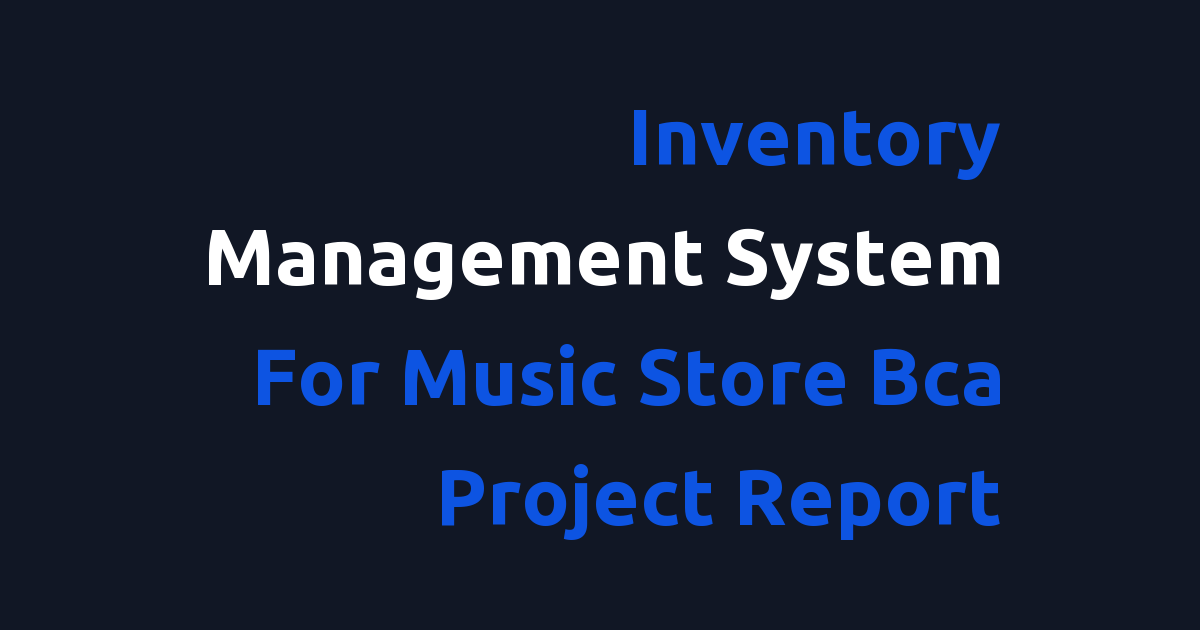Report on a music store’s inventory management system for a BCA project.
Inventory Management System for Music Store BCA Project Report
Introduction
In today’s digital age, the need for efficient inventory management systems has become paramount for businesses to thrive. This is especially true for music stores, where managing a large inventory of CDs, vinyl records, and other musical merchandise can be a daunting task. In this project report, we will be examining the existing inventory management system utilized by a typical music store and proposing a new and improved system that can streamline operations and improve overall efficiency.
Problem Statement
The primary issue with the current inventory management system used by many music stores is its reliance on manual processes. This includes keeping track of inventory levels, placing orders for restocking, and updating pricing information. These manual processes are not only time-consuming but also prone to errors, leading to discrepancies in inventory levels and potential stockouts. Additionally, the lack of real-time data updates makes it challenging for store managers to make informed decisions regarding inventory management.
Existing System
The existing inventory management system in most music stores involves the use of spreadsheets or basic inventory management software. This system requires store employees to manually input data regarding incoming and outgoing stock, update pricing information, and generate reports on inventory levels. However, this manual process is inefficient and can lead to inaccuracies in inventory records.
Disadvantages
– Time-consuming manual data entry processes
– Prone to errors and inaccuracies
– Lack of real-time data updates
– Difficulty in generating accurate reports
Proposed System
The proposed inventory management system for music stores will involve the implementation of a cloud-based inventory management software. This software will automate various inventory management processes, including tracking of stock levels, placing orders for restocking, and updating pricing information. Additionally, the system will provide real-time updates on inventory levels, allowing store managers to make informed decisions quickly.
Advantages
– Automation of inventory management processes
– Real-time updates on inventory levels
– Improved accuracy in inventory records
– Enhanced decision-making capabilities for store managers
Features
– Barcode scanning for quick and accurate data entry
– Integration with suppliers for automated restocking
– Customizable pricing rules for flexible pricing strategies
– Real-time analytics and reporting capabilities
Conclusion
In conclusion, the implementation of a modern inventory management system can greatly benefit music stores by improving operational efficiency, reducing errors, and enhancing decision-making capabilities. By moving away from manual processes and adopting automation through cloud-based software, music stores can stay competitive in today’s fast-paced retail environment. It is recommended that music stores consider upgrading their inventory management systems to realize these benefits and ensure long-term success.

